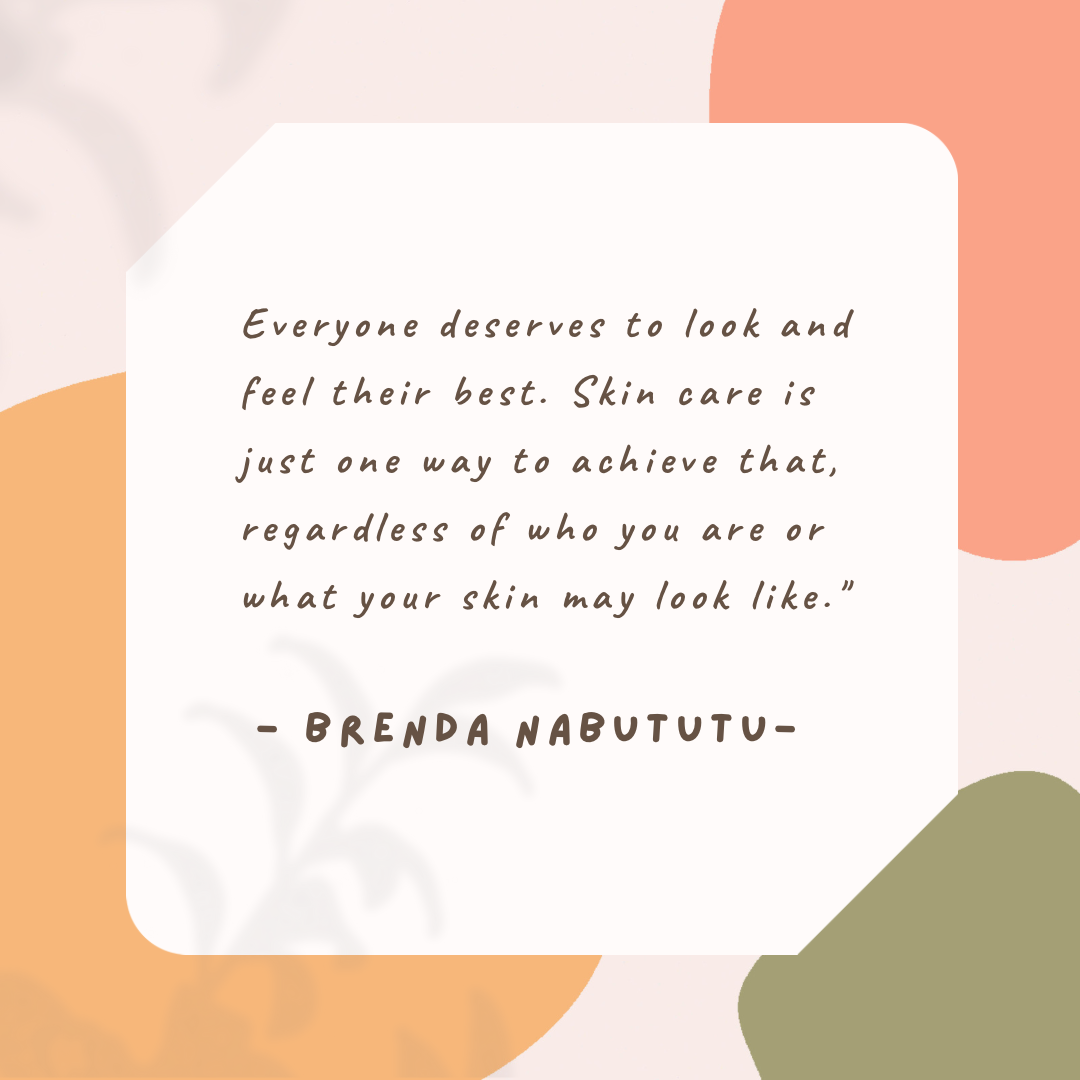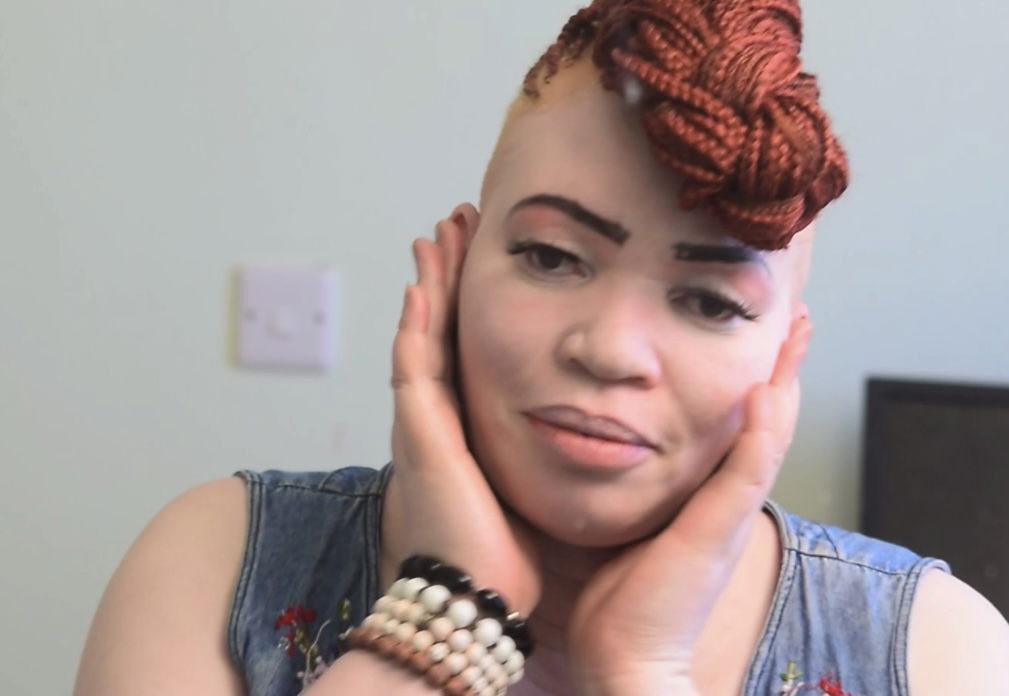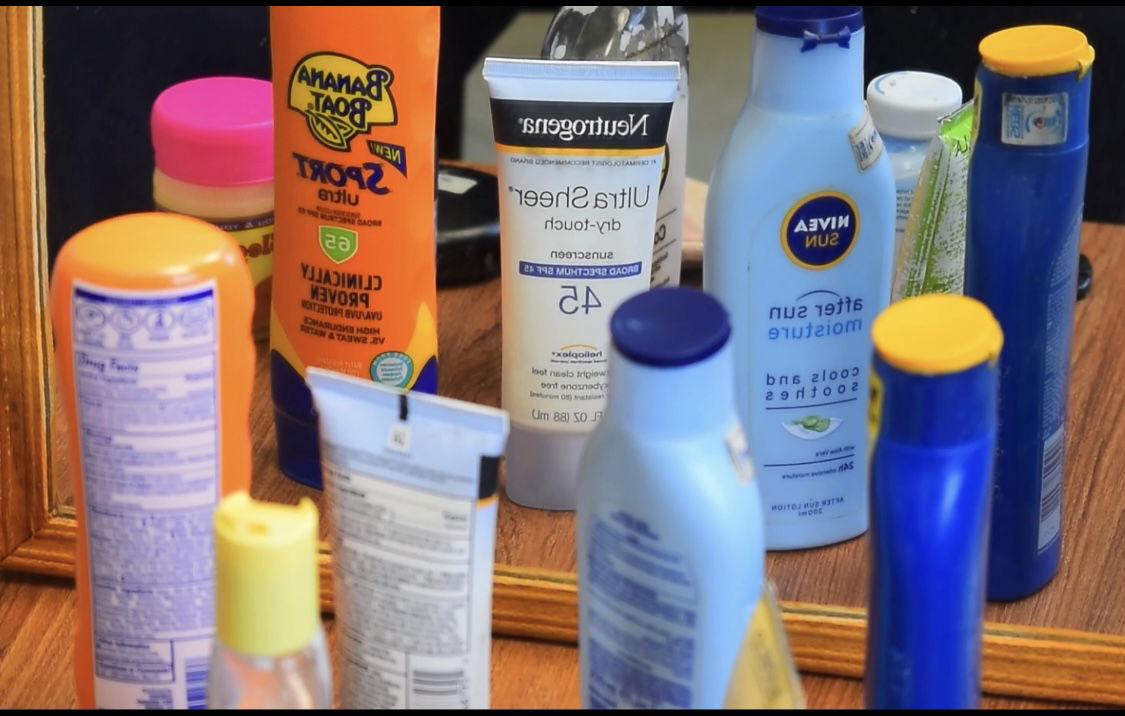SKIN CARE FOR POEPLE WITH ALBINISM: CHALLENGES AND RECOMMENDATIONS.
According to a report by Grand View Research, the global skin care market was valued at $145.3 billion in 2020 and is projected to reach $180.4 billion by 2024.
While the global skin care market continues to thrive and generate significant revenue, there are groups of people who face barriers to accessing high-quality and affordable skin care. These disparities can be especially acute for indigenous and vulnerable communities,
Despite these challenges, individuals with albinism like Brenda Nabututu have developed effective skin care routines to protect their skin and maintain its health and vitality. In this article Brenda provides valuable insights into the types of products and routines that can be effective for individuals with albinism.

Brenda says for her routine she;
- 1Starts by washing her face with water and a mild soap, like a gentle baby soap, in the morning while taking a bat,
- She pats her face dry with a clean towel, remember to avoid rubbing your face vigorously with the towel as it can cause irritation and damage to the skin.
- She then applies sunscreen with a minimum SPF of 50 to protect her skin from the sun's harmful rays. She insists on taking more time to gently rub your skin so the sunscreen can be absorbed into your skin.
Tip,
Apply sunscreen thirty (30) minutes to one (1) hour before you leave the house to head outside.
She adds that if you are applying makeup after applying your sunscreen, make sure your sunscreen has been absorbed completely into your skin to avoid mixup between chemicals and tone shades.

Then;
Apply a primer to your face to create a smooth base for your makeup. A primer will help your makeup last longer and prevent it from caking or creasing. Follow it up with your makeup, starting with a foundation that matches your skin tone. Use a concealer to cover up any blemishes or dark circles under your eyes. Do not forget the eye makeup, such as eyeshadow, eyeliner, and mascara, to enhance your eyes. And if you have the tools, add a blush or bronzer to add colour to your cheeks and contour your face and finally, with a setting spray to lock your makeup in place and make it last longer.
Certainly! When selecting makeup products as a person with albinism, there are a few things to consider in order to ensure that the products are suitable for your skin. These are Brenda’s recommendations.
- Shade range: It's important to find a makeup brand that offers a wide range of shades, as individuals with albinism often have very light skin that may require a specific shade.
- Sun protection: Makeup products that also contain sunscreen can be beneficial for individuals with albinism, as their skin is more susceptible to sun damage.
- Hypoallergenic ingredients: Because individuals with albinism often have sensitive skin, it's important to look for makeup products that contain hypoallergenic ingredients to minimize the risk of irritation.
- Non-comedogenic: Makeup products that are non-comedogenic can be helpful for individuals with albinism who are prone to acne, as they are less likely to clog pores.
- Moisturizing ingredients: Look for makeup products that contain moisturizing ingredients such as hyaluronic acid or glycerin to help keep your skin hydrated.
It's important to note that the Kenyan government provides sunscreen support to people with albinism through the National Albinism Sunscreen Support Program. While the Albinism sunscreen support program is a valuable resource for persons with albinism, there are unfortunately times when access to these government-provided products may be limited or unavailable. In these situations, it's important to explore alternative options for sunscreen to ensure that you're always protecting your skin from harmful UV rays.

After a day out, it's important for you to have an evening routine to remove makeup and protect your skin. Begin by removing makeup with a gentle cleanser or makeup remover. Then, apply a moisturiser or aftersun product to help soothe and hydrate the skin. water instead.
Certainly! While the above routine is geared towards women, men can also benefit from a similar skin care routine, albeit with some modifications. For instance, men who don't use makeup can skip the makeup removal step and simply proceed to cleansing and moisturizing their face.
In conclusion, taking care of your skin is essential for maintaining overall health and wellbeing. We urge individuals and governments alike to prioritise accessible and affordable skin care options for all, including those with albinism. Let's work together to ensure that everyone has the opportunity to care for their skin and feel confident in their own skin.